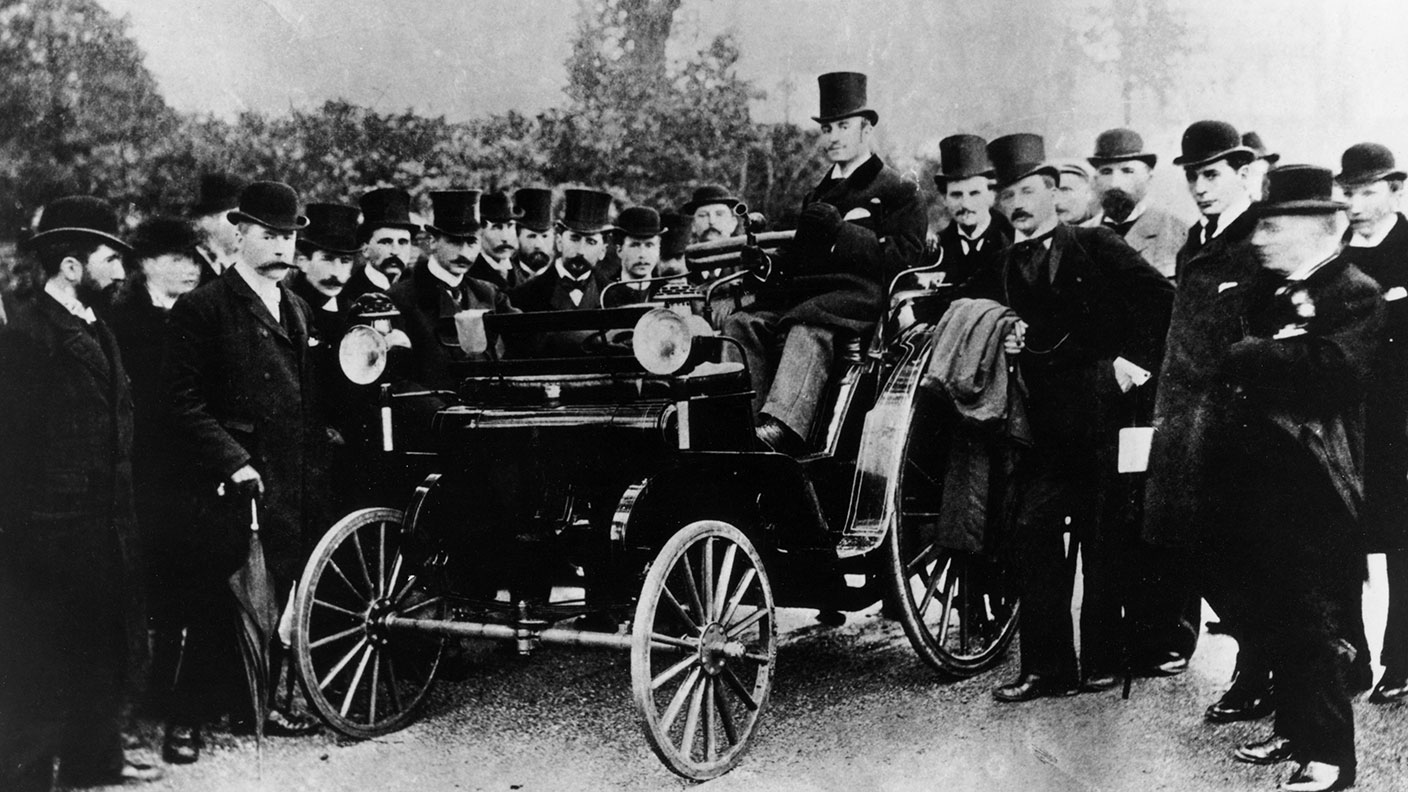
Get the latest financial news, insights and expert analysis from our award-winning MoneyWeek team, to help you understand what really matters when it comes to your finances.
You are now subscribed
Your newsletter sign-up was successful
Want to add more newsletters?

Twice daily
MoneyWeek
Get the latest financial news, insights and expert analysis from our award-winning MoneyWeek team, to help you understand what really matters when it comes to your finances.

Four times a week
Look After My Bills
Sign up to our free money-saving newsletter, filled with the latest news and expert advice to help you find the best tips and deals for managing your bills. Start saving today!
On this day in 1896, Bridget Driscoll of Croydon, Surrey, was out for a pleasant afternoon's stroll in Crystal Palace Park with her daughter, May. Unfortunately for the doomed Mrs Driscoll, she would become the first in a very (very) long line of statistics road fatalities.
Because also in the park was one Arthur James Edsall, one of three motor-car drivers giving joyrides to visitors. And depending on who you believe, he was driving a little too fast and not paying quite enough attention.
As she strolled along the Dolphin Terrace, Mrs Driscoll was suddenly faced with Edsall's motor carriage bearing down on her, "zig-zagging" down the road, as May told the inquest into her mother's death. Unused to seeing such a contraption – there were perhaps only 20 cars in the country at the time – Mrs Driscoll was rooted to the spot, "bewildered". She held up her umbrella, perhaps to signal the car to stop.
MoneyWeek
Subscribe to MoneyWeek today and get your first six magazine issues absolutely FREE

Sign up to Money Morning
Don't miss the latest investment and personal finances news, market analysis, plus money-saving tips with our free twice-daily newsletter
Don't miss the latest investment and personal finances news, market analysis, plus money-saving tips with our free twice-daily newsletter
But despite there being "plenty of room for the car to have passed", it careered straight into her and "went over her head, death quickly ensuing", according to the Western Times.
Edsall claimed he was driving at no more than four miles an hour. Indeed, the car wasn't capable of doing more than four and a half, he said, as it was restricted. And even if it wasn't, its top speed would be just eight miles an hour. But others disagreed. At the inquest, a witness described the car "as fast as a fire-engine – in fact, as fast as a horse can gallop".
A passenger in the car testified that the car was going "faster than any omnibus" she had ever been on, and it swerved to the right for no apparent reason, and hit poor Mrs Driscoll.
In another first, perhaps, the inquest sided with the driver, and the death was officially recorded as an "accident".
The coroner said he hoped "such a thing would never happen again". A wildly optimistic hope: according to the Royal Society for the Prevention of Accidents, over half a million people have died on Britain's roads.
Edsall, however, lived to the ripe old age of 84, dying in 1941.
Get the latest financial news, insights and expert analysis from our award-winning MoneyWeek team, to help you understand what really matters when it comes to your finances.

-
 Should you buy an active ETF?
Should you buy an active ETF?ETFs are often mischaracterised as passive products, but they can be a convenient way to add active management to your portfolio
-
 Power up your pension before 5 April – easy ways to save before the tax year end
Power up your pension before 5 April – easy ways to save before the tax year endWith the end of the tax year looming, pension savers currently have a window to review and maximise what’s going into their retirement funds – we look at how
-
 31 August 1957: the Federation of Malaya declares independence from the UK
31 August 1957: the Federation of Malaya declares independence from the UKFeatures On this day in 1957, after ten years of preparation, the Federation of Malaya became an independent nation.
-
 13 April 1960: the first satellite navigation system is launched
13 April 1960: the first satellite navigation system is launchedFeatures On this day in 1960, Nasa sent the Transit 1B satellite into orbit to provide positioning for the US Navy’s fleet of Polaris ballistic missile submarines.
-
 9 April 1838: National Gallery opens in Trafalgar Square
9 April 1838: National Gallery opens in Trafalgar SquareFeatures On this day in 1838, William Wilkins’ new National Gallery building in Trafalgar Square opened to the public.
-
3 March 1962: British Antarctic Territory is created
Features On this day in 1962, Britain formed the British Antarctic Territory administered from the Falkland Islands.
-
10 March 2000: the dotcom bubble peaks
Features Tech mania fanned by the dawning of the internet age inflated the dotcom bubble to maximum extent, on this day in 2000.
-
9 March 1776: Adam Smith publishes 'The Wealth of Nations'
Features On this day in 1776, Adam Smith, the “father of modern economics”, published his hugely influential book The Wealth of Nations.
-
 8 March 1817: the New York Stock Exchange is formed
8 March 1817: the New York Stock Exchange is formedFeatures On this day in 1817, a group of brokers moved out of a New York coffee house to form what would become the biggest stock exchange in the world.
-
7 March 1969: Queen Elizabeth II officially opens the Victoria Line
Features On this day in 1969, Queen Elizabeth II took only her second trip on the tube to officially open the underground’s newest line – the Victoria Line.
